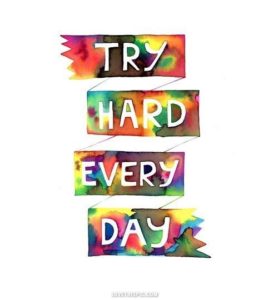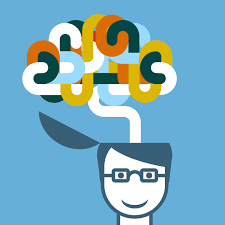How to Study: High Impact Methods – Savannah Collis
As someone who wonders just how these top students manage to do it, I decided to take on the challenge to discover the hidden secrets of the high-brow. Many articles have been written to aid those longing for higher grades; however, I intend to shed a little light onto the psychology behind how the high achieving students approach their learning and what their high impact strategies on revision and notes are.

Students can be split into three learning approaches: deep, surface and the achieving attitude. In the deep approach students are found to have an ensured understanding and make good sense of what they’re taught. Their strategies to learning are to focus on the meaning behind their learning, to develop their own understanding and to then relate those ideas and make relevant links to things previously learnt. In the surface approach, one meets the exact criteria of what is expected of the student instead of pushing themselves to go the extra mile; I’m sure many of us are guilty of this. The surface learning students limit their studies to the bare essentials. Finally, the achieving approach: this is a student type that I’m sure every class has and will come to find their competitive nature and high ego or self-esteem noticeably present among the classroom. These students identify what they must do to obtain a specific high grade or award and mostly behave as the “model student”.

In my studies I came to find that, understandably, learning outcome is also massively impacted by the relationship between the pupil and teacher. Most top students say that they founded a good relationship with their teacher and actually liked them and so it made learning easier. Students who dislike their teacher or who are under the impression their teacher does not like them were found to have lower grades despite their general approach.
Having spoken to some top students at RHS, their general outlook on studies were overall positive. However, this was not enough for me as I wanted to delve deeper as to the reason behind their positivity at school. As the expectation of high grades has been exponentially increasing, most students spoken to said they came from a family that fully supports academia and wholeheartedly encourages a keen outlook on school. One student said that they fully embrace being called a “try hard” as this is their goal anyway, to try hard. The most common high impact strategies of the higher achieving students were making good class notes so that they can transfer their work into any chosen format be it flash cards, mind maps etc.
As my searches for the secret to success became less and less ground breaking and my deadline encroached I took it upon myself to find some statistics in relation to the ever-debated topic of electronics impacting academics. A BBC article founded information from a Cambridge study on 845 students with an age range of 14-16. The Cambridge team discovered that for every extra hour spent on electronics their grades were reduced by the equivalent of two grades.
To conclude, there is no revelatory secret I can tell as to how those strikingly smart people in your class do it, but I can confirm it is possible to be like them; it just depends on your psychological perception of school. I can also confirm that these top students are not using specialised algorithms or jaw-dropping hidden methods. As stated above, there are numerous measures possible to increase your grades, such as: limit screen time, or change your attitude – but I know that this is easier said than done. I wish you the very best of luck with your academic endeavour and implore you to think more strategically about your attitude to your studies.
















Post Comment
You must be logged in to post a comment.